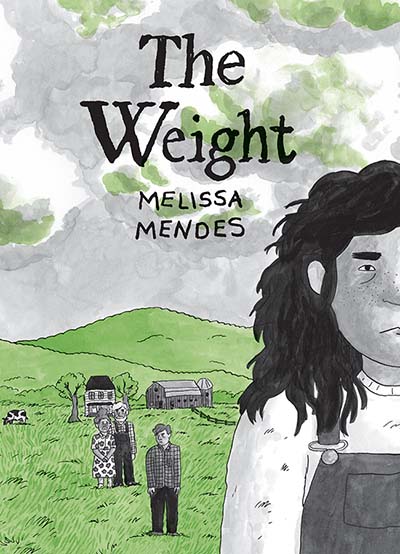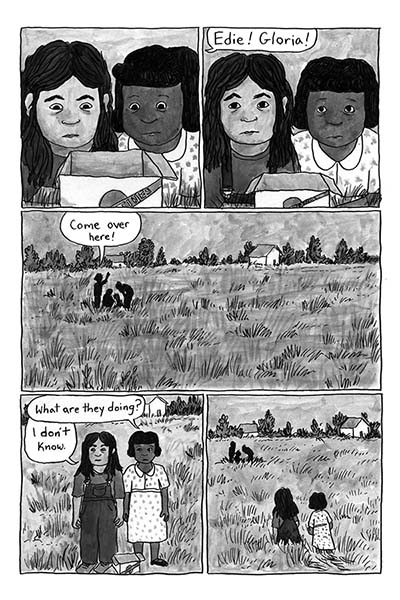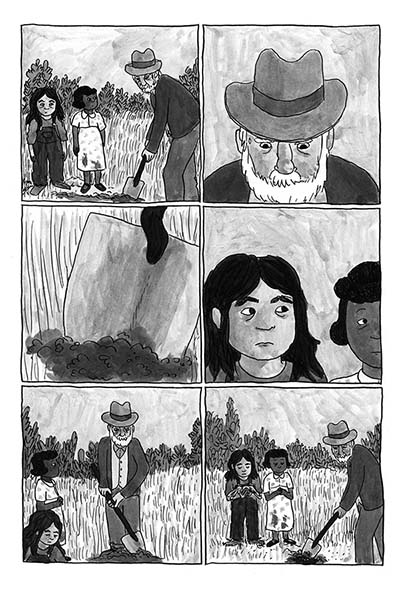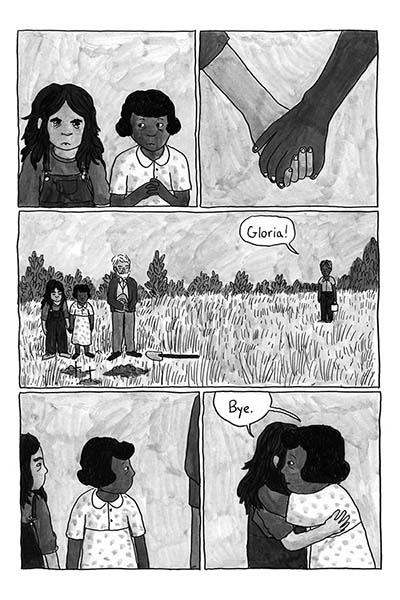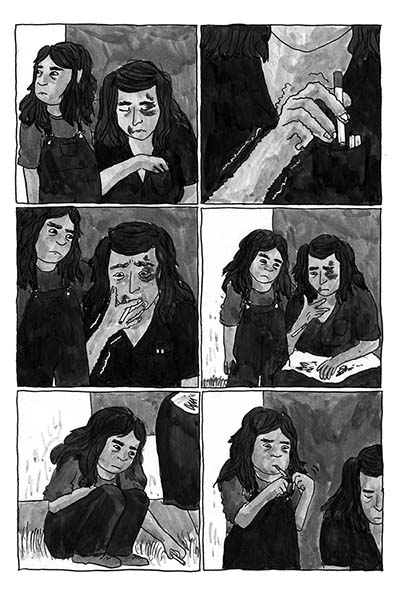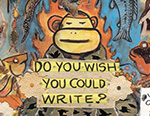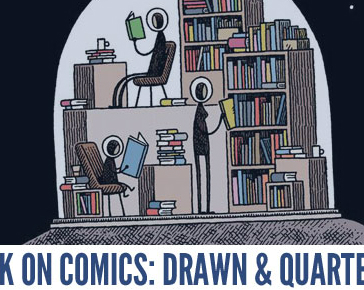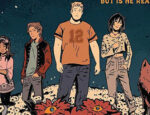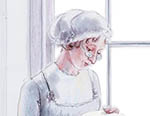A decade or so ago, while speaking about her plan for The Weight, which had yet to be completed, American artist Melissa Mendes spoke of her love of family sagas that spanned generations. She mentioned John Steinbeck’s East of Eden and Colleen McCullough’s The Thorn Birds. Now, with the whole webcomic lovingly published as a whole, it’s easy to see how the influence of those writers weighs heavily (pun unintended) on every page of her epic tale.
This is one of those family histories that sweeps one effortlessly into a different time and place, and the way it was created may have something to do with why that happens. Mendes began creating the comic in 2014, putting up a couple of pages every week, slowly recreating a rural America that now presumably exists only in corners that few travellers stop to explore. It’s large, desolate, and filled with the kind of people country musicians love to write sad songs about. If that makes it sound bathetic, the opposite is true because of the undeniable authenticity of Mendes’s voice. There is sadness here, and a lot of trauma, but it never fits into the category of what some might refer to as ‘tragedy porn’.
Inspired by the life of her late grandfather, the story follows Edie, a girl born into violence, condemned to see it repeat itself in her life even as she tries her best to move out of its shadow. Edie’s mother, Marian, fails to free herself from her abusive husband, but tries to give her daughter an opportunity she has never had. When Erie’s life comes perilously close to the same kind of trajectory, one starts to recognise the weight that Mendes alludes to in her title. There is crushing despair in these lives of forgotten people in little-known towns, set during the Great Depression when all of America was already struggling to rise above tragic circumstances.
Mendes also uses landscapes to convey emotion, diluting ink with water to simulate the effect of watercolours while building layers of light and dark. The effect is compounded by the dreary surroundings of rural Pennsylvania where Erie comes closest to finding joy while working with her grandparents as a farmer. This is done with the lightest of touches, with Mendes recreating everyday scenes involving Edie and her grandparents, life at school, and the simple pleasures of country life.
One of the interesting things about this narrative arc is how tragedy doesn’t give way to redemption, even as the reader expects it to. Edie comes close to finding happiness, but is trapped in a world beyond her control, where other players feel compelled to repeat the sins of their parents and grandparents. It’s why the shadow of Steinbeck in particular looms large, reminding the reader of his own novels where vulnerable characters struggled against systemic injustice, only to succumb to events or situations beyond their control. The people in Edie’s world want to do better, but can’t, and that is precisely what makes us identify with them because they compel us to recognise our own frailties.
This isn’t easy reading by any means, but it is necessary, not only because Mendes is a great storyteller, but because she manages to use the comic form to do what great novels use a lot of prose to accomplish. It is a fabulous effort that makes for a great book.
Melissa Mendes (W/A) • Drawn & Quarterly, $29.95
Review by Lindsay Pereira





